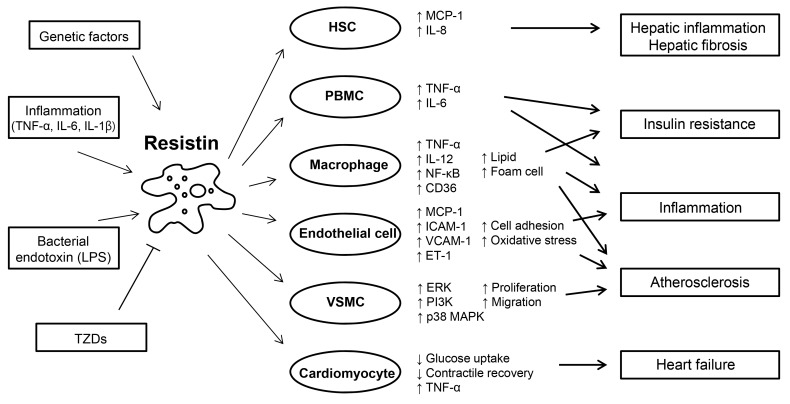Fig. 1.
Roles of resistin in inflammation, glucose homeostasis, and cardiovascular diseases. Resistin is induced in response to various stimuli, including proinflammatory cytokines, lipopolysaccharide (LPS), and genetically determined factors. Resistin targets several types of cells, promoting inflammation, insulin resistance, and atherosclerosis. Resistin is up-regulated and secreted from PBMC and macrophages, and in turn, acts on these cells, leading to the development of insulin resistance and enhancing inflammatory processes through activation of nuclear factor (NF)-κB. Resistin contributes to the pathogenesis of atherosclerosis by disrupting vascular endothelial cellular function, and increasing proliferation of smooth muscle cells, and foam cell transformation. Resistin directly affects the function of cardiomyocytes predisposing to myocardial injury. Adapted from Schwartz et al. Trends Endocrinol Metab 2011;22:259-65, with permission from Elsevier [55]. HSC, hepatic stellate cell; MCP, monocyte chemoattractant protein; IL, interleukin; TNF, tumor necrosis factor; PBMC, peripheral blood mononuclear cell; ICAM, intercellular adhesion molecule; VCAM, vascular cell adhesion molecule; ET, endothelin; VSMC, vascular smooth muscle cell; ERK, extracellular signal-regulated kinase; PI3K, phosphatidylinositol-3-kinase; MAPK, mitogen-activated protein kinase; TZD, thiazolidinedione.

